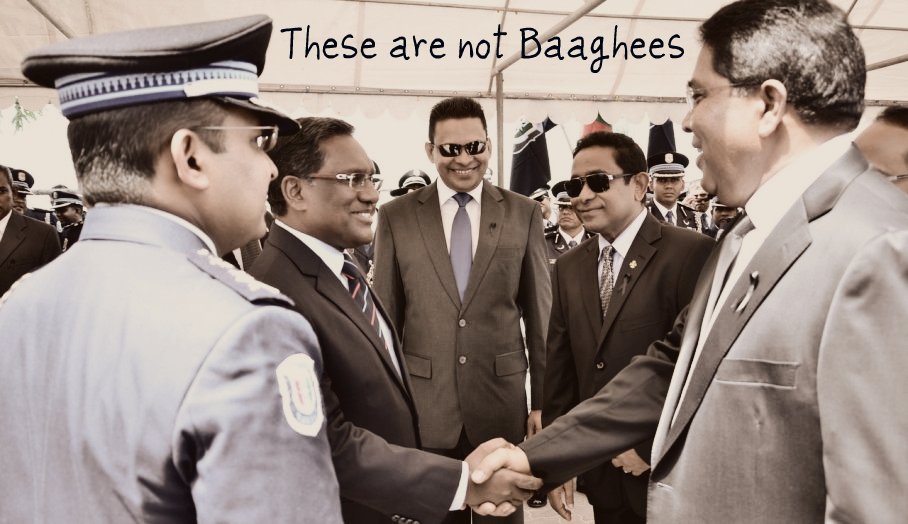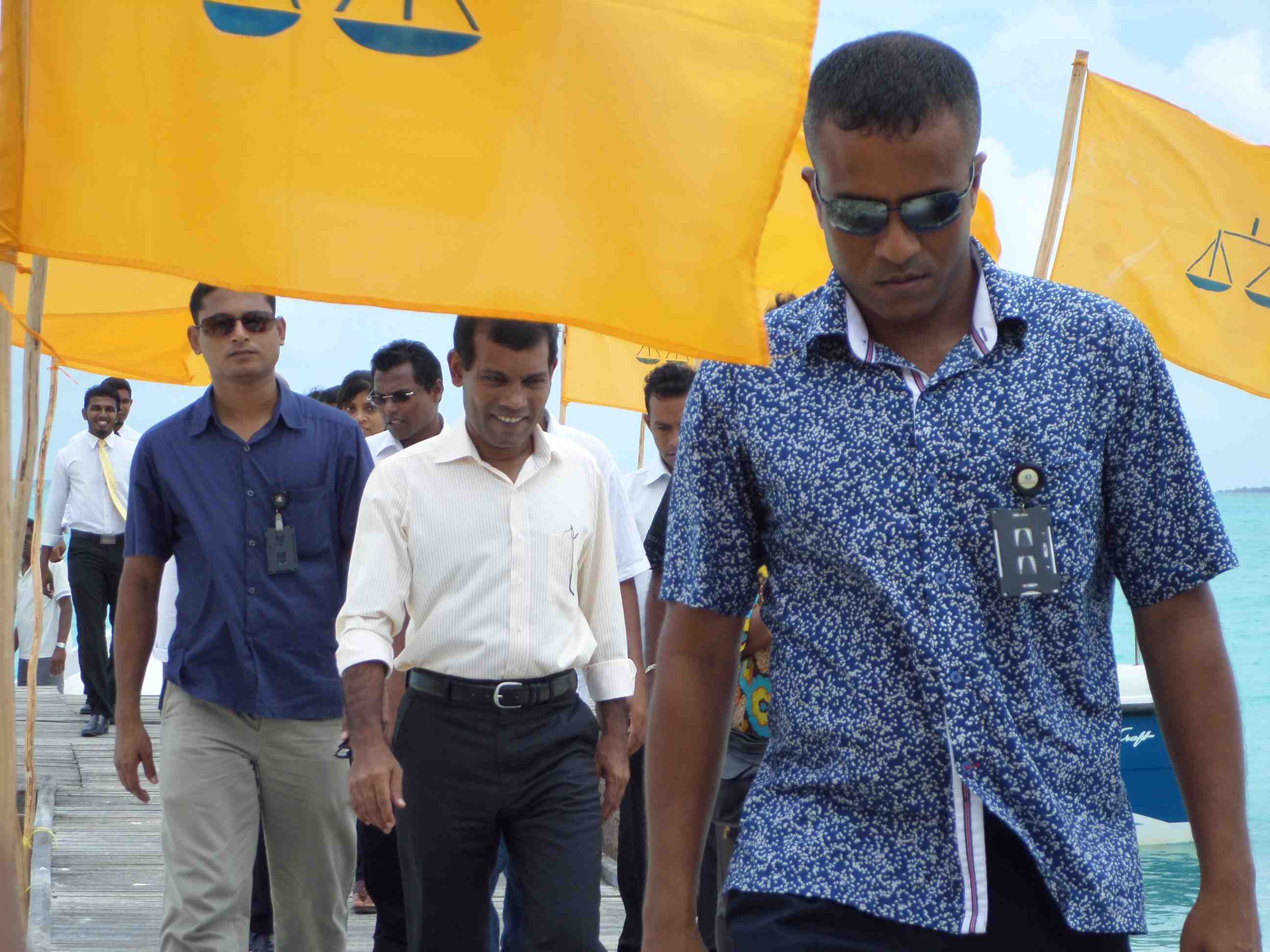This is not a dictatorship
by Azra Naseem
Since the 7 February 2012 coup that was not a coup, a disconcerting dissonance between what people witness with their own eyes and what they are officially told they see has become a regular part of life.
Last week, thousands of voting Maldivians watched the X-Rated video of Supreme Court Judge Ali Hameed having sex with three prostitutes at a high-end hotel in Colombo, Sri Lanka. It was not just his clothes that Hameed shed in front of the people but also his dignity along with the ethical and legal right to sit on the bench. Ethical because he so carelessly flouted the values of his profession and legal because Maldives defines unmarried sex between consenting adults as the crime of fornication.
Yet the official reaction has been like a ticker-tape running across the entire length of Hameed’s sexual marathon saying, ‘This is not sex. This is not zinah. This is not Hameed.’
Gasim Ibrahim, the presidential candidate for Jumhooree Party, has been one of the most vocal defenders of the judge. He asks us to ponder the infinite possibilities of why it was not Hameed in the video: ‘Anyone can dye their hair red.’ No one can argue with that, not in these days of L’Oréal etc.
Adhaalath the self-appointed ‘religious leaders’—and the last Maldivian political institution one would expect to favour an informed decision over an ignorant one—has announced it cannot say ‘Hameed is fornicating’ or ‘Hameed is not fornicating’ unless the Judicial Service Commission says ‘This is Hameed or ‘This is not Hameed.’ Until then Adhaalath — or any other government entity — will not see what it sees, nor must our own eyes see what they see.
In November last year, 38 MPs in Majlis agreed President of the Civil Service Commission, Mohamed Fahmy, was more likely than not to have sexually harassed a female servant as she alleged. They voted to have him removed from the CSC. Fahmy, though, is still there in the CSC, accompanied by a subliminal government-issue caption designed to appear under every image of Fahmy we come across: ‘This is not a sexual harasser’ or ‘Sexual harassment is not a crime.’
Back in April this year, pictures emerged of Defence Minister Mohamed Nazim and Tourism Minister Ahmed Adeeb hob-nobbing with the Artur Brothers – Armenian gangsters who were chased out of Kenya in 2006 for heroin trafficking and involvement in the country’s troubled political scene.
Initially the official line was to say it was neither Nazim nor Adeeb hanging with the gangsters. Then came a very Gasim-esque defence: ‘It is possible that the Ministers and the Brothers were in the same place at the same time. That doesn’t mean they were together as in together together.’
Soon after, pictures emerged of the Brothers at the gala event organised by Nazim and Adheeb to re-open Olympus theatre. This was followed by evidence that one of them was staying in Farukolhufushi, a resort under direct control of Adheeb at the time. Still, the official line was: ‘This is not happening.’
It was the same with the leaked draft Status of Forces Agreement (SOFA) with the United States. Nazim and others denied they saw the leaked version on ‘social media’, but were able to confirm ‘this is not the SOFA’. So it was not.
A similar story with the PISCES system gifted by the United States: ‘This is a border control system,’ said both governments, and so it is; even though controlling borders is the least of PISCES’ concerns.
Then there were reports of the forged ‘extension’ of the agreement to extend the lease of Farukolhufushi resort, a copy of which was shown on Raajje TV. Independently verifiable evidence exists that Adheeb took US$400,000 as a sweetener from the lessee of Farukolhufushi in exchange for the extension. But, the authorities have stuck the ‘This did not happen’ label on the incident, so it hasn’t.
Latest in these series of events occurred yesterday, the day marked on the calendar as ‘The Independence Day’. Two events were held to confirm this: one at the museum and one at the Republic Square. The event at the museum was a reception hosted by Mohamed Waheed Hassan Manik and his wife Ilham Hussein for local and foreign dignitaries. It was held in the hall usually reserved for the most precious of national heritage artifacts. Their storage requires specific conditions, their care and handling needs highly trained hands. This is the expert opinion. The official line, however, is different. In direct contradiction of results of years of study, the President’s Office put out a statement saying: Having the party at the museum, or having untrained labourers move the priceless artifacts will not damage them. So it won’t.
Last night Male’ watched as Maumoon Abdul Gayoom was given the highest national award of respect. For thirty years, Gayoom ruled the Maldives without respect for either human freedoms, dignity or the rule of law. It was a dictatorship that stalled economic, social, cultural and intellectual development for an entire generation. But, the national honour, the shining thing around his neck, screams ‘This is not a dictator’. So he must not be.
This is a democracy.


